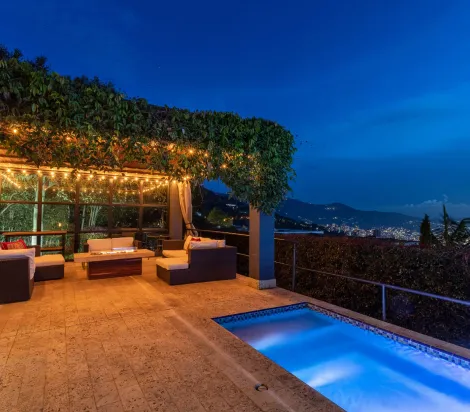Why Mastering Holiday Rental Management is Crucial
Holiday rental management involves overseeing short-term rental properties for homeowners. This can be anything from managing bookings to maintenance and guest communication. Whether you’re a homeowner looking to maximize your rental income or a guest seeking a hassle-free vacation, mastering holiday rental management is essential. Let’s break it down:
For Homeowners:
– Increased Revenue: Expert management can boost your rental income by ensuring high occupancy rates and optimal pricing.
– Less Stress: Hand over the daily grind of managing bookings, maintaining the property, and dealing with guests.
– Improved Property Care: Professional managers take better care of your property, reducing wear and tear.
For Guests:
– Seamless Experience: Enjoy easy booking, reliable support, and modern amenities.
– Personalized Touch: Benefit from custom services that make your stay more comfortable and memorable.
– High Standards: Stay in well-maintained, clean, and fully equipped properties.
By understanding holiday rental management, you’re setting yourself up for success, whether you’re renting out your property or booking a vacation home.

Understanding Holiday Rental Management
Holiday rental management is all about running short-term rental properties like apartments, villas, or cabins on behalf of homeowners. Think of it as a full-service operation that takes care of everything from marketing the property to dealing with guest issues.
Definition
Holiday rental management involves managing a property that is rented out to vacationers for short periods. The goal is to ensure the property is booked, well-maintained, and provides a great experience for guests. This not only maximizes the rental income but also keeps the property in top shape for the owner.
Scope
The scope of holiday rental management is broad. It includes:
- Property Promotion: Using various marketing techniques to advertise the property. This can be through listing websites, social media, and even building a custom booking website.
- Reservations Management: Handling bookings, cancellations, and special requests from guests.
- Guest Check-In and Check-Out: Ensuring smooth access to the property, often using keyless entry systems.
- Property Cleaning and Maintenance: Coordinating housekeeping and maintenance tasks to prepare the property for each new guest.
- Guest Communication: Providing excellent customer service by responding to queries and offering personalized touches, such as travel recommendations.
- Issue Resolution: Dealing with any problems or emergencies that arise, whether it’s guest dissatisfaction or property damage.
- Analytics and Revenue Management: Monitoring property performance and using strategies to maximize profits.
- Administrative Tasks: Managing taxes, insurance, and utility payments.
Responsibilities
The responsibilities of a holiday rental management company can be extensive. Here’s a breakdown of the main tasks:
- Marketing and Promotion: Creating listings, running social media campaigns, and managing a custom booking website.
- Booking Management: Handling all aspects of reservations, from initial booking to post-stay follow-ups.
- Guest Services: Ensuring guests have everything they need for a pleasant stay, including answering questions and providing local recommendations.
- Housekeeping and Maintenance: Keeping the property clean and in good repair, including handling any emergency repairs.
- Financial Management: Collecting rental payments, paying bills, and providing financial reports to the property owner.
- Compliance: Ensuring the property complies with local laws and regulations, including paying occupancy taxes.
Setting Up Your Holiday Rental
Setting up your holiday rental is a critical step in ensuring its success. This section covers legal and regulatory considerations, preparing your property, and essential amenities.
Legal and Regulatory Considerations
Before you list your holiday rental, it’s crucial to understand the local laws and regulations. Many cities have specific rules for short-term rentals that you must follow.
- Local Laws: Some cities, like Dallas, have banned short-term rentals in certain zones. Always check your local regulations to avoid fines or legal issues .
- Permits: Many areas require a permit or license to operate a holiday rental. For example, Barcelona and Santa Monica have strict permit requirements.
- Taxes: Don’t forget about local occupancy taxes, which can range from 5% to 10%. You can either handle these taxes yourself or have your management company do it.
Preparing Your Property
Once you have all the legalities sorted, the next step is to prepare your property. This involves furnishing, maintenance, and safety measures to make your rental appealing and safe for guests.
- Furnishing: Choose reliable and functional furniture that fits the space. Opt for pieces that you can easily replace if damaged. A well-furnished property attracts more bookings (source).
- Maintenance: Regular maintenance is crucial. Coordinate with housekeeping and repair staff to ensure the property is always in top condition. This includes routine checks and seasonal maintenance (source).
- Safety Measures: Install smoke detectors, fire extinguishers, and first-aid kits. Make sure the property complies with local safety regulations to ensure the well-being of your guests.
Essential Amenities
To make your holiday rental stand out, you need to offer essential amenities that guests expect.
- Wi-Fi: Fast and reliable internet is a must-have. Many travelers, especially digital nomads, prioritize properties with good Wi-Fi.
- Smart Home Features: Keyless entry systems can simplify check-in and checkout processes. Other smart home features like smart thermostats and security cameras can also improve guest experience (source).
- Kitchen Essentials: A well-stocked kitchen can make a big difference. Ensure you have basic cooking utensils, pots, pans, and appliances like a microwave and coffee maker. This can attract longer stays and higher ratings.
By carefully considering these aspects, you’ll set a strong foundation for your holiday rental, making it attractive to both homeowners and guests. Next, we’ll dive into marketing strategies to get your property noticed.
This section is designed to be clear and straightforward, following the simple style requested. It includes relevant quotes, case studies, and statistics to back up the information provided.
Marketing Your Holiday Rental
To get your holiday rental noticed, you need to master marketing. This involves using online platforms, social media, and SEO strategies effectively. Let’s dive in.
Utilizing Online Platforms
Online platforms are essential for reaching potential guests. They offer easy-to-use interfaces and large audiences.
- iHost Property Management Platform: Our platform is perfect for showcasing unique stays and has a large user base trusted by many travelers.
- iHost Family-Oriented Rentals: Great for family-oriented rentals, this platform focuses on whole-home stays. It’s ideal if your property can accommodate larger groups.
- iHost Business and Vacation Rentals: This platform caters to a broad audience, including business travelers and vacationers. It’s a good option for urban apartments and traditional stays.
Social Media Marketing
Social media is a powerful tool for marketing your holiday rental. Platforms like Facebook and Instagram can help you reach more guests.
- Facebook Groups: Join local travel and vacation rental groups. Share your listings and engage with potential guests.
- Instagram: Post high-quality photos and use relevant hashtags. Instagram is visual, so make sure your property looks appealing.
- Targeted Ads: Use Facebook and Instagram ads to reach specific audiences. You can target people based on location, interests, and behaviors.
SEO Strategies
SEO (Search Engine Optimization) helps your property appear in search engine results. This can drive more organic traffic to your listings.
- Keyword Optimization: Use keywords like “holiday rental” and “vacation home” in your listings and website content. This helps search engines understand what your property offers.
- Content Marketing: Write blog posts about local attractions, travel tips, and your property. This can attract more visitors to your site.
- Local SEO: Optimize for local searches by including your location in your keywords. For example, “beachfront villa in Malibu.”
Pricing Strategies for Holiday Rentals
Dynamic Pricing Tools
Dynamic pricing is the practice of adjusting rates based on demand, market conditions, and other factors. This strategy helps ensure you maximize revenue by charging higher rates during peak times and offering discounts when demand is low.
Why use dynamic pricing? It helps you stay competitive and optimize your earnings. iHost Property Management’s automation uses machine learning algorithms to analyze market data and set the optimal price for your rental.
Example: If a major event is happening nearby, our dynamic pricing tools can automatically increase your rates to capitalize on the influx of visitors.
Seasonal Adjustments
Understanding seasonal trends is crucial for holiday rental management. Different seasons bring varying levels of demand, and adjusting your prices accordingly can make a big difference.
- Peak Seasons: These are times of high demand, such as summer for beach rentals or winter for ski lodges. During these periods, you can charge premium rates.
- Off-Peak Discounts: To attract guests during slower periods, consider offering discounts. This can help maintain occupancy year-round.
- Special Events: Local events like festivals, concerts, and sports games can also affect demand. Adjust your pricing to reflect these opportunities.
Competitor Analysis
Knowing what your competitors are doing can give you a significant edge. Regularly check their rates, amenities, and guest reviews to see how you stack up.
- Market Research: Use tools to gather data on competitor pricing and occupancy rates. This helps you understand the market and set competitive prices.
- Pricing Comparison: Compare your rates with similar properties in your area. If your rates are higher, ensure you offer added value like extra amenities or better customer service.
- Unique Selling Points (USPs): Identify what makes your property unique and highlight these features. Whether it’s a stunning view, proximity to attractions, or luxury amenities, make sure potential guests know what sets you apart.
Managing Bookings and Guest Experience
Reservation Systems
Managing bookings efficiently is key to running a successful holiday rental. Using reservation systems can simplify this process. These systems help you track reservations, manage calendars, and automate responses.
Booking software like iHost integrates all your bookings in one place. It synchronizes your calendar across multiple platforms like Airbnb, VRBO, and Booking.com. This prevents double bookings and keeps everything organized.
Automated responses are another crucial feature. They can send instant confirmation emails and reminders to guests, saving you time. For example, when a guest books a stay, the system can automatically send a welcome email with check-in instructions and local tips.
Enhancing Guest Experience
Creating a memorable guest experience is vital for positive reviews and repeat bookings. Start by offering welcome packages. A small basket with local snacks, a map of the area, or a handwritten note can make a big impression.
Providing 24/7 support is also essential. Guests might have questions or face issues at any time. Having a support team ready to help ensures that problems are solved quickly, enhancing their stay.
Personalized services can set your property apart. If you know a guest is celebrating a special occasion, consider leaving a small gift or a card. This attention to detail shows you care and can lead to glowing reviews.
Feedback and Reviews
Collecting and managing feedback is crucial for continuous improvement. After a guest checks out, send a follow-up email asking for a review. Make it easy for them to leave feedback on platforms like Airbnb or Google.
Responding to feedback, both positive and negative, is important. Thank guests for their positive comments and address any issues mentioned in negative reviews. This shows future guests that you are committed to improving and providing the best experience.
Use the feedback to improve your services. If multiple guests mention the same issue, take action to fix it. Whether it’s upgrading amenities or improving cleanliness, these changes can lead to better reviews and more bookings.
By using advanced reservation systems, enhancing the guest experience, and actively managing feedback, you can ensure your holiday rental stands out and keeps guests coming back.
Next, we’ll discuss how to handle maintenance and housekeeping to keep your property in top shape.
Maintenance and Housekeeping
Keeping your holiday rental in top shape is crucial for guest satisfaction and repeat bookings. Let’s dive into cleaning schedules, regular maintenance, and emergency repairs.
Cleaning Schedules
Turnover Cleaning: After each guest checks out, a thorough cleaning is essential. This includes changing linens, sanitizing bathrooms, and cleaning the kitchen. A clean property not only impresses guests but also keeps your property in good condition.
Deep Cleaning: Schedule deep cleaning sessions every few months. This involves cleaning carpets, curtains, and other areas that aren’t covered in turnover cleaning. Deep cleaning helps maintain the property and prevent long-term damage.
Eco-Friendly Products: Use eco-friendly cleaning products to appeal to environmentally-conscious guests. Products like biodegradable detergents and non-toxic cleaners are good for the planet and safe for your guests.
Regular Maintenance
Routine Checks: Regularly inspect your property for wear and tear. Check appliances, plumbing, and electrical systems. Routine checks help you catch small issues before they become big problems.
Seasonal Maintenance: Different seasons bring different challenges. In winter, check heating systems and insulate pipes. In summer, ensure air conditioning units are functioning well. Seasonal maintenance keeps your property guest-ready all year round.
Professional Services: Sometimes, you need the experts. Hire professionals for tasks like HVAC maintenance, electrical work, and plumbing. Professional services ensure the job is done right and safely.
Emergency Repairs
24/7 Support: Emergencies can happen at any time. Offer 24/7 support to handle urgent issues like plumbing leaks or electrical failures. Quick response times can save your property from serious damage and keep guests happy.
Local Contractors: Build a network of reliable local contractors. Having trusted professionals on call ensures you can address emergencies swiftly. This is particularly important for maintaining your property’s reputation.
Quick Response: Speed is critical in emergencies. Whether it’s a burst pipe or a broken lock, quick repairs minimize inconvenience for guests and prevent further damage to your property.
By maintaining a strict cleaning schedule, performing regular maintenance, and being prepared for emergencies, you can keep your holiday rental in excellent condition. This not only improves guest satisfaction but also prolongs the life of your property.
Next, we’ll answer some frequently asked questions about holiday rental management.
Frequently Asked Questions about Holiday Rental Management
What is holiday rental management?
Holiday rental management involves overseeing a short-term rental property on behalf of the homeowner. This can include apartments, villas, or other types of accommodations. The main responsibilities of a holiday rental management company typically include:
- Property Promotion: Using various marketing techniques to advertise and promote properties.
- Property Distribution: Creating listings on platforms like Airbnb, VRBO, and Booking.com, while ensuring availability and rates are synchronized.
- Reservations Management: Handling bookings, special requests, and cancellations.
- Guest Check-in and Checkout: Facilitating smooth check-ins and checkouts, often using keyless entry technologies.
- Property Cleaning and Maintenance: Coordinating housekeeping and maintenance to prepare the property for guests.
- Guest Communication: Providing excellent customer service, from pre-stay reminders to post-stay surveys.
- Issue Resolution: Addressing emergencies or problems such as guest dissatisfaction or property damage.
- Analytics and Revenue Management: Monitoring property performance and using strategies like dynamic pricing to maximize profits.
- Administrative Tasks: Managing taxes, insurance, utility payments, and reporting to property owners.
How do I market my holiday rental?
Marketing your holiday rental effectively is crucial for attracting guests. Here are some key strategies:
Utilizing Online Platforms
Listing your property on popular platforms like Airbnb, VRBO, and Booking.com is essential. These platforms provide a wide reach and tools to manage bookings and payments. For example, Evolve focuses on the digital side of business, handling marketing and distribution to scale efficiently.
Social Media Marketing
Social media can be a powerful tool for marketing your holiday rental. Use platforms like Facebook and Instagram to:
- Join Facebook Groups: Engage with local and travel-related groups to promote your rental.
- Run Targeted Ads: Use Facebook and Instagram ads to reach potential guests based on their interests and location.
- Share High-Quality Photos: Post appealing photos of your property to attract attention.
SEO Strategies
Search Engine Optimization (SEO) helps your property appear in search engine results. Here’s how to optimize:
- Keyword Optimization: Use relevant keywords in your property description and blog posts.
- Content Marketing: Write articles about local attractions and travel tips to draw visitors to your site.
- Local SEO: Ensure your property is listed on Google My Business and other local directories.
How do I set up a vacation rental rate?
Setting the right rate for your vacation rental involves several strategies and tools:
Dynamic Pricing Tools
Using dynamic pricing tools can help you adjust rates based on demand. These tools analyze market data to optimize pricing. For instance, iHost Property Management uses automation and intelligence-driven pricing strategies to maximize rental income.
Seasonal Adjustments
Adjust your rates according to the season:
- Peak Seasons: Increase rates during high-demand periods like holidays and summer.
- Off-Peak Discounts: Offer discounts during slower periods to attract more guests.
- Special Events: Adjust rates for local events that draw visitors to the area.
Competitor Analysis
Analyze your competitors to set competitive rates:
- Market Research: Study similar properties in your area to understand their pricing.
- Pricing Comparison: Compare your rates with those of competitors to ensure they are competitive.
- Unique Selling Points: Highlight features that make your property stand out, such as special amenities or a prime location.
By understanding holiday rental management, marketing your property effectively, and setting the right rates, you can maximize your rental income and provide a great experience for your guests.
Next, let’s dive into the importance of enhancing the guest experience to ensure repeat bookings and positive reviews.
Conclusion
In summary, mastering holiday rental management involves a blend of strategic planning, effective marketing, and impeccable guest service. From understanding local regulations and preparing your property to setting competitive prices and maintaining high standards, each step is crucial for success.
At iHost Property Management, we specialize in changing vacation properties into high-yield investments. Our expertise and custom management plans ensure that your property not only meets but exceeds your financial expectations. We handle everything from dynamic pricing to guest communication, allowing you to enjoy hassle-free ownership.
In conclusion, the holiday rental market offers immense opportunities for property owners willing to invest in quality management. By partnering with a trusted company like iHost Property Management, you can lift your property’s performance and maximize your rental income. Let’s take your holiday rental to the next level together.
Ready to optimize your holiday rental? Contact us today to get started!







